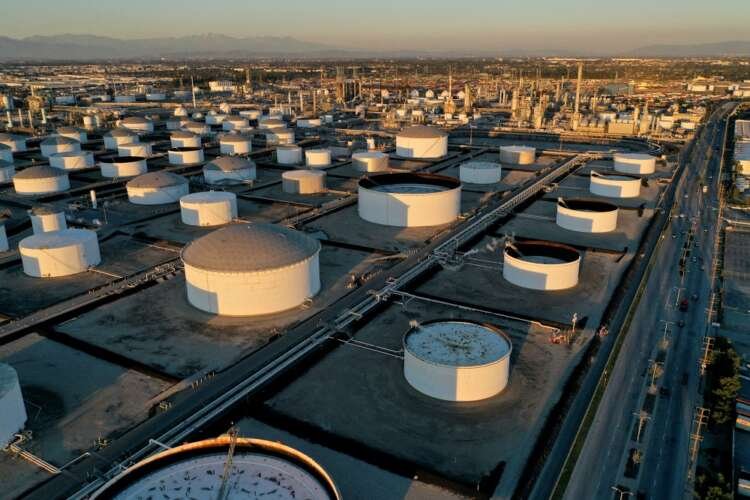Oil falls on China growth worries as EU weighs Russian crude ban


By Noah Browning
LONDON (Reuters) -Oil prices fell on Monday as concerns over weak economic growth in China, the world’s top oil importer, overshadowed fears supply might be crimped by a potential European Union ban on Russian crude.
Brent crude futures were down $3.73, or 3.4%, to $103.41 a barrel at 1403 GMT, while U.S. West Texas Intermediate (WTI) crude futures fell $3.98, or 3.8%, to $100.71 a barrel.
Markets in Japan, Britain, India and across Southeast Asia were closed for public holidays on Monday.
China released data on Saturday showing factory activity in the world’s second-largest economy contracted for a second month to its lowest since February 2020 because of COVID lockdowns.
“A slowing to that extent, when China is already suffering from a property bust and worries about its (until recently) increased regulation, is potentially a major issue for commodity markets and the world economy,” said Tobin Gorey, a Commonwealth Bank commodities analyst, in a note.
On the supply side, Libya’s National Oil Corp (NOC) said on Sunday it would temporarily resume operations at the Zueitina oil terminal after it declared force majeure in late April on some shipments as political protesters forced a number of oil facilities to suspend operations.
Limiting the downside for prices was the EU leaning towards banning Russian oil imports by the end of the year, according to two EU diplomats, after talks between the European Commission and EU member states over the weekend.
The European Commission may spare Hungary and Slovakia from the embargo due to their strong dependency on Russian oil, two EU officials said on Monday, as the Commission is set to finalise its next batch of sanctions on Russia on Tuesday.
Around half of Russia’s 4.7 million barrels per day (bpd) of crude exports go to the EU, supplying about a quarter of the EU’s oil imports in 2020.
While Western countries have refrained from buying Russian oil due to sanctions on those exports, the impact on global supply has been somewhat cushioned as India has been picking up heavily-discounted Russian cargoes.
Still, “Russia’s ability to redirect all unwanted cargoes from the West to Asia is limited”, consultancy Rystad Energy said.
“In the case of embargoes, Russia will be forced to cut production further as it lacks storage capacity for extra crude volumes.”
(Additional reporting by Sonali Paul; Editing by Bernadette Baum, Mark Potter and Emelia Sithole-Matarise)
Brent crude is a major trading classification of crude oil originating from the North Sea. It serves as a benchmark for oil prices globally and is used to price two-thirds of the world's crude oil.
West Texas Intermediate (WTI) is a grade of crude oil used as a benchmark in oil pricing. It is sourced from the U.S. and is known for its light and sweet characteristics, making it desirable for refining.
Economic growth typically increases demand for oil, leading to higher prices. Conversely, concerns about slowing economic growth can lead to decreased demand and lower oil prices.
Explore more articles in the Top Stories category











